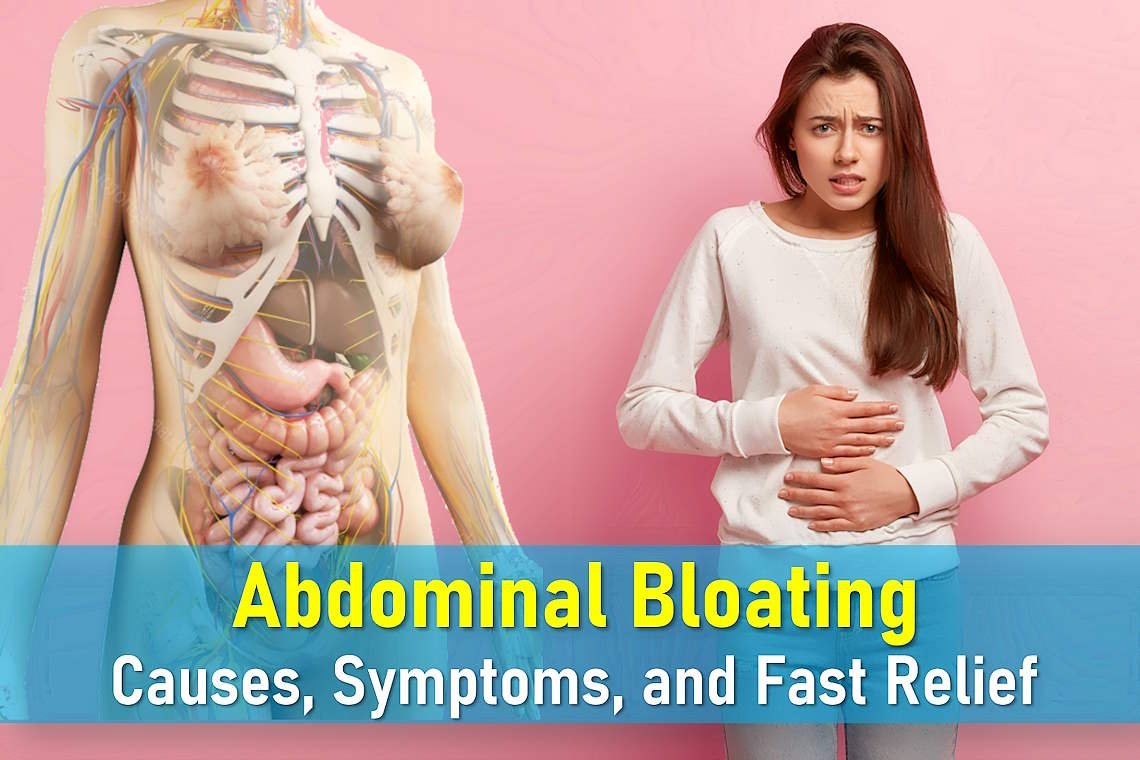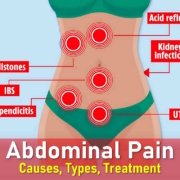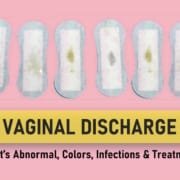Bloated Stomach? Causes, Symptoms, and Fast Relief
A bloated stomach is a common issue, but it can sometimes signal a more serious health problem. While occasional bloating is normal, persistent bloating, especially when accompanied by other symptoms, may require medical attention. If you experience a distended abdomen for more than two weeks, along with unexplained weight loss, pale skin, loss of appetite, or yellowing of the skin, it could be a warning sign of an underlying condition, including cancer. Never ignore chronic bloating.
The Science Behind Bloating
Bloating occurs when your digestive system fills with excess gas or air, creating that familiar tight, distended feeling. While some gas production is normal (the average person passes gas 13-21 times daily), problematic bloating typically involves:
- Visible abdominal swelling
- Discomfort ranging from mild pressure to sharp pains
- Frequent belching or flatulence
- A sensation of fullness even after small meals
Bloated Stomach vs. Stomach Fullness: What’s the Difference?
Many people confuse a bloated stomach with general stomach fullness, but they aren’t the same. Bloating specifically refers to excessive gas buildup, which can cause:
- A swollen stomach or distended belly
- Upper stomach bloating or upper abdominal bloating
- Discomfort or pain, especially after eating very little
- Excessive belching or flatulence
- Temporary relief after passing gas
Understanding Bloating and Its Symptoms
Everyone has some gas in their digestive tract, but sensitivity varies. Some people feel discomfort even with normal gas levels, while others may produce excess gas due to diet or digestive issues. Trapped gas can lead to:
- A bloated belly that feels hard when pressed
- Crampy stomach pains, sometimes localized in the upper abdomen
- Frequent belching or flatulence
- A feeling of heaviness or abdominal swelling
Gas can accumulate in different areas of the colon, such as near the liver or spleen, causing pain in the upper right or left abdomen. Interestingly, the severity of bloating doesn’t always correlate with the seriousness of the cause. For example, someone with IBS might experience intense bloating, while a person with celiac disease may have milder symptoms.
What Causes Bloating?
While occasional bloating is normal, some people experience persistent discomfort that makes them wonder, “Why am I always bloated?” Understanding the root causes can help you find effective bloating remedies and prevent future discomfort.
Excess Air Swallowing (Aerophagia)
Many people unknowingly swallow too much air, leading to upper stomach bloating and discomfort. Common triggers include:
- Stress or anxiety (causes frequent air swallowing)
- Chewing gum or smoking
- Eating too quickly
- Drinking carbonated beverages
In some cases, people develop a habit called supragastric belching, where air is sucked into the throat and burped out before reaching the stomach. Others deliberately swallow air to relieve indigestion, which can actually worsen bloating after eating.
Dietary Triggers for Bloating
Certain foods are notorious for causing a swollen stomach and excess gas production:
- Cruciferous vegetables: Broccoli, Brussels sprouts, cabbage
- Starchy foods: Potatoes, corn, pasta
- High-fiber foods: Beans, lentils, whole grains
- Carbonated drinks: Soda, sparkling water
Food Intolerances That Cause Bloating
- Lactose Intolerance: When your body can’t properly digest lactose (found in dairy products), you may experience stomach bloating, diarrhea, and cramping after consuming milk-based foods.
- Fructose and Sorbitol Intolerance: Many people struggle to digest certain sugars:
- Fructose: Found in honey, apples, pears, and high-fructose corn syrup
- Sorbitol: An artificial sweetener in sugar-free gum and candies
Medications That Contribute to Bloating
Several common medications can lead to abdominal bloating as a side effect:
- Diabetes medications: Metformin often causes gastrointestinal upset
- Laxatives: Lactulose can increase gas production
- Antacids: Some types produce carbon dioxide in the stomach
- Pain medications: Opioids slow digestion
If you’re experiencing chronic bloating and take any of these medications, consult your doctor about possible alternatives or solutions to reduce bloating.
When to Consider Other Causes
While diet and lifestyle factors explain most cases of bloating, persistent symptoms might indicate:
- Irritable bowel syndrome (IBS)
- Small intestinal bacterial overgrowth (SIBO)
- Celiac disease
- Digestive tract obstructions
If your stomach feels heavy and bloated regularly, or if you experience bloating after eating very little, it may be time to consult a healthcare professional to rule out underlying conditions.
Medical Conditions That Can Cause Chronic Bloating
While most bloating stems from dietary habits or temporary digestive issues, persistent abdominal swelling may signal an underlying health condition. If you frequently find yourself asking, “Why is my stomach so bloated?” despite lifestyle changes, these medical causes might be worth considering.
Autoimmune and Inflammatory Conditions
Celiac Disease: This autoimmune disorder causes the immune system to attack the small intestine when gluten (a protein in wheat, barley, and rye) is consumed. The resulting intestinal damage impairs nutrient absorption and leads to fermentation of undigested food by gut bacteria, producing excess gas. Patients often experience bloating within hours of eating gluten, along with diarrhea, fatigue, and in some cases, skin rashes. Unlike temporary food sensitivities, celiac disease requires strict lifelong gluten avoidance.
Inflammatory Bowel Diseases (Crohn’s & Ulcerative Colitis): These chronic inflammatory conditions disrupt normal digestion through intestinal swelling, ulceration, and scarring. In Crohn’s disease, inflammation can occur anywhere in the digestive tract, while ulcerative colitis specifically affects the colon. Both conditions cause bloating through several mechanisms: narrowed intestinal passages slow food transit, bacterial imbalances increase gas production, and inflammation directly irritates the gut wall. Patients typically experience bloating alongside abdominal pain, bloody stools, and unpredictable bouts of diarrhea.
Functional and Structural Digestive Disorders
Small Intestinal Bacterial Overgrowth (SIBO): Normally, the small intestine contains relatively few bacteria compared to the colon. SIBO occurs when excess bacteria migrate upward, fermenting food prematurely and producing hydrogen and methane gases. This leads to pronounced bloating that worsens after carbohydrate-rich meals. Many SIBO patients report their abdomen becomes visibly distended as the day progresses. The condition often develops after food poisoning, antibiotic use, or in those with slow gut motility.
Diverticulitis: When small pouches (diverticula) that form in the colon wall become infected or inflamed, the resulting swelling can obstruct normal bowel function. This leads to localized bloating, typically on the lower left side where most diverticula form. The bloating occurs alongside fever and bowel changes because inflammation both slows intestinal movement and alters gut bacteria populations. Unlike temporary bloating, diverticulitis pain persists and requires medical treatment.
Systemic Diseases With Digestive Effects
Scleroderma: This rare autoimmune disease causes thickening of connective tissues, including those in the digestive tract. As the intestinal muscles stiffen, they lose the ability to properly contract and move food along (a condition called intestinal pseudo-obstruction). Food stagnation leads to extreme bloating, bacterial overgrowth, and alternating constipation/diarrhea. Many patients also experience difficulty swallowing as esophageal muscles weaken.
Ovarian Cancer: Often called “the silent killer,” ovarian cancer frequently goes undetected until advanced stages because early symptoms like bloating are dismissed as routine digestive issues. The bloating occurs as tumors grow and fluid accumulates in the abdomen (ascites). Unlike meal-related bloating that comes and goes, cancer-related bloating persists daily and worsens over weeks. Women may also notice feeling full quickly, urinary urgency, and unexplained weight changes.
Infectious Causes
Bloating can sometimes signal an infection rather than just dietary issues. Here are two common infectious causes worth knowing about:
Giardiasis
This intestinal infection occurs when you ingest the Giardia parasite, often through contaminated water or food. The parasites irritate your small intestine, leading to:
- Persistent bloating and stomach cramps
- Foul-smelling gas and burping
- Greasy, floating stools (from poor fat digestion)
Symptoms typically appear 1-2 weeks after exposure and may last weeks without treatment. While uncomfortable, giardiasis is treatable with prescription medications
Viral Gastroenteritis
Commonly called “stomach flu,” these viral infections cause sudden inflammation in your digestive tract. Symptoms appear rapidly and include:
- Noticeable abdominal swelling and bloating
- Nausea with frequent vomiting
- Watery diarrhea that develops quickly
Unlike food-related bloating, these symptoms often come with fever and body aches. Most cases resolve within a few days with rest and hydration.
How Bloating Is Diagnosed: Tests and Evaluations
While occasional bloating rarely requires medical intervention, certain warning signs warrant professional evaluation. Consider seeing your doctor if you experience:
- Persistent diarrhea or constipation
- Blood in your stool
- Unexplained weight loss
- Loss of appetite
- Fever accompanying bloating
- Persistent vomiting
- Signs of anemia (fatigue, pale skin)
- Difficulty swallowing
Your doctor may recommend these diagnostic tests:
- Stool analysis: Checks for blood, fat malabsorption, or infections
- Breath tests: Identifies lactose intolerance or bacterial overgrowth
- Imaging studies: X-rays or CT scans to visualize your digestive tract
- Endoscopic procedures: Camera examinations and directed biopsies of your stomach or colon
- Blood tests: Screens for celiac disease or other conditions
Bloating Relief: Remedies and Treatments
Bloating can leave you feeling uncomfortable and self-conscious, but the good news is, there are several effective ways to ease the symptoms. From dietary adjustments to lifestyle changes, here’s how you can relieve and prevent bloating using proven, practical methods.
Dietary Modifications
Identifying and eliminating trigger foods is one of the most effective bloating remedies. Keep a food diary to track:
- Dairy products (for lactose intolerance)
- High-FODMAP foods (fermentable carbohydrates)
- Carbonated beverages
- Artificial sweeteners
- Cruciferous vegetables
Consider these dietary adjustments:
- For lactose intolerance: Switch to lactose-free alternatives or take lactase enzymes
- For fructose malabsorption: Avoid high-fructose corn syrup and certain fruits
- For general bloating: Increase soluble fiber gradually (oats, flaxseeds)
- Probiotics: May help balance gut bacteria, though evidence is mixed
Lifestyle Changes
- Exercise regularly: Physical activity helps move gas through your digestive tract
- Improve eating habits: Eat smaller meals, chew thoroughly, and avoid talking while eating
- Stay upright after meals: Lying down can trap gas in your digestive system
- Manage stress: Anxiety can worsen digestive symptoms
Over-the-Counter Solutions
Several medications may provide bloating relief:
- Simethicone: Helps break up gas bubbles (may not work for IBS-related bloating)
- Digestive enzymes: Assist with breaking down problematic foods
- Peppermint oil: Natural antispasmodic that may relieve bloating
- Activated charcoal: May help absorb excess gas (evidence is limited)
You can also try these natural recipes to relieve bloating “Tea for Bloating: 13 Natural Recipes to Relieve Gas“.
Complementary Approaches
- Abdominal massage: Gentle clockwise massage may help move trapped gas
- Yoga poses: Certain positions can help release abdominal pressure
- Mindfulness techniques: Helpful for stress-related digestive issues
When to Seek Professional Treatment
If your bloated stomach persists for more than two weeks despite self-care measures, consult a healthcare provider. Chronic bloating could indicate:
- Irritable bowel syndrome (IBS)
- Small intestinal bacterial overgrowth (SIBO)
- Food intolerances
- More serious gastrointestinal conditions
Prevention Tips
Stop bloating before it starts with these tips:
- Avoid eating large meals quickly
- Limit gum chewing and carbonated drinks
- Stay physically active throughout the day
- Manage stress through relaxation techniques
- Stay hydrated with non-carbonated beverages
Final Thoughts
While occasional bloating is normal, understanding its causes can help you find effective relief and know when to seek medical attention. Remember that persistent bloating—especially when accompanied by weight loss, blood in stool, or severe pain—warrants professional evaluation. By making targeted dietary changes, staying active, and using proven remedies, most people can significantly reduce uncomfortable bloating. Listen to your body, track your symptoms, and don’t hesitate to consult a gastroenterologist if your bloated stomach persists despite lifestyle adjustments.
FAQs About Bloated Stomach
Why am I so bloated I look pregnant?
Severe bloating that makes your stomach appear distended like pregnancy can result from food intolerances, IBS, SIBO, or hormonal fluctuations. If this occurs frequently without explanation, consult your doctor to rule out underlying conditions.
What’s the fastest way to relieve bloating?
For quick bloating relief, try gentle exercise (like walking), abdominal massage, peppermint tea, or OTC gas remedies. Avoiding carbonated drinks and salty foods can also provide rapid improvement.
Why does my stomach feel heavy and bloated after eating small meals?
This could indicate slowed digestion, food sensitivities, or conditions like gastroparesis. Keeping a food diary helps identify triggers, while smaller, more frequent meals may help alleviate symptoms.
How can I avoid bloating after eating?
Prevent post-meal bloating by eating slowly, avoiding carbonated beverages, limiting high-FODMAP foods, staying upright after meals, and taking short walks after eating to stimulate digestion.
When should I worry about a hard, bloated stomach?
Seek medical attention if your stomach remains hard and bloated for more than a week, is painful to touch, or accompanies fever, vomiting, or significant weight loss—these could signal serious conditions.
What causes upper stomach bloating specifically?
Upper abdominal bloating often relates to overeating, acid reflux, gastritis, or gallbladder issues. Unlike lower bloating (typically intestinal gas), upper bloating may involve stomach distension or inflammation.









